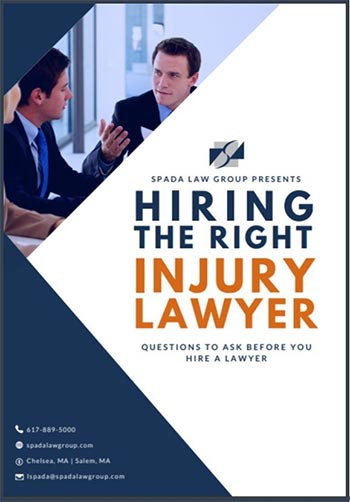.png)
More Time at Home Means More Accidents at Home
Since March 2020 most of us have been spending significantly more time in our homes, apartments, or condominiums than we did in 2019. Whether it's a work from home situation, a remote learning schedule for your child, or because you’ve been one of the thousands to become unemployed due to the pandemic, we are now spending twice as much of our awake time in our homes. As such, the chances of sustaining an injury at home have gone up dramatically. We have seen an increase in calls from tenants who have been injured at home asking about their legal rights. They want to know if they can sue their landlords for their injuries and they are concerned that if they do their landlord might retaliate against them in one way or another. Hopefully, this blog will answer these questions and a few others. The photographs below are all from actual cases we have handled and are presented as an example of some of the problems we see helping tenants injured in their homes.
We have represented tenants for injuries sustained on their rented property since 1998 and have seen most of the common accident scenarios one can imagine during this time span. Below, I have summarized some of the scenarios we have encountered which will illustrate just how dangerous our homes can be if not properly managed by our landlords.
4 Common Causes of Injuries at Home
1. Slip and Falls on Snow and Ice
Slipping on snow or ice entering or exiting a rented property is among the most common accident scenario we encounter. New England winters are notorious for producing some treacherous walking conditions and landlords often fail to live up to their legal obligations for removing and treating dangerous conditions on their property. But exactly what are a landlord’s responsibilities when it comes to snow and ice removal? A relevant Massachusetts regulation addressing exits (also called egress) to residential rental property states in part that:
“The owner shall maintain all means of egress at all times in a safe, operable condition and shall keep all exterior stairways, fire escapes, egress balconies and bridges free of snow and ice, provided, however, in those instances where a dwelling has an independent means of egress, not shared with other occupants, and a written letting agreement so states, the occupant is responsible for maintaining free of snow and ice, the means of egress under his or her exclusive use and control.”
A landlord has a duty to a tenant who slips and falls on snow or ice in a common area of the premises (hallways, stairs, parking lots, etc.) if the landlord failed to exercise reasonable care in removing the snow and ice unless the tenant is comparatively negligent and is more than fifty percent responsible for his or her own injuries.
It is important to note that the legal determination of what is “reasonable care” under the circumstances and whether you are partially at fault for your slip and fall are issues you should discuss with an experienced injury lawyer before making any determinations on whether to pursue legal action.
2. Defective Stairs, Stairwells, and Handrails
We see many cases resulting from poor lighting, broken steps, and missing or “defective” handrails. The injuries we have handled in these situations range from minor orthopedic problems such as strains and sprains to severe brain injuries, broken bones, and even death. Falling down a flight of stairs can and does cause terrible injuries.
Handrails and stair rails serve crucial safety functions. In addition to providing a handgrip to prevent falls, handrails act as a barrier to preventing someone from falling to the floor or ground below. If the handrail is missing or broken, a tenant is repeatedly exposed to serious harm or even death. In Massachusetts, The State Building Code spells out in great detail the requirements of where and when handrails are required as well as the specifics of their dimensions. Failure to comply with these regulations may be used as evidence against the property owner in any legal action that results.
Again, proving that the stairs or handrails violate state code requires the use of experts. People are often under the impression that successfully handling a slip and fall case involving violations of Building and Sanitary Codes are cut and dry and can be handled by any lawyer. Nothing could be further from the truth. The serious fall cases we have handled have been some of the more complex injury cases we have brought to court. They require careful preparation by a lawyer experienced with the nuances of code violations. They are also vigorously defended by the insurance company for the landlord, so having experienced counsel on your side is a must. Below are just two examples of stairwells we’ve encountered that have serious problems and have caused injuries.

3. Defective Walkways
We are currently handling a case in which our client while walking on a cement walkway on the grounds of his apartment complex, tripped on a broken piece of concrete sustaining horrific injuries. We were able to show the condition had been in that state of disrepair for such a long time that the landlord knew OR SHOULD HAVE KNOWN they had a defective condition on the property and should have fixed it. Often landlords, either because of cost constraints, mismanagement or a combination of both allow their properties to become rundown and ultimately dangerous.
These cases require a thorough investigation from the outset to be successful. It is important to get photographs as soon as possible of the defect as a quick repair by the landlord can make illustrating the extent of the defect difficult. At some point, whether it's to an insurance company or to a jury in court, we must adequately describe the condition in order to persuade that it is, in fact, dangerous and should have been noticed by the landlord and repaired. That’s hard to do with just a verbal description. Therefore, getting an injury lawyer involved close in time to your fall is so important.
Bad defect, but should the client have seen it and avoided it?
Questions we wrestle with when helping our clients.
4. Defective Flooring and or Carpeting
We have had many cases that involved injuries inside an apartment caused by floors that were in disrepair and carpets that were flagrant tripping hazards. We have one case now involving a client who tripped on a dangerously placed inappropriate rug in a common area. She sustained a serious brain injury as a result. Sometimes despite repeated complaints by tenants to correct a flooring issue, the complaints don’t get addressed in a timely manner and an accident occurs. If you notice any tripping hazards in your apartment or common area, be sure to notify your landlord immediately in writing. Send an email, or text promptly and keep it as a record that you gave notice. Sometimes landlords will argue they had no notice of the defect and therefore never had a chance to “act reasonably” and fix the problem. Your notice will eliminate such a defense.
Carpet remnants on top of carpets = tripping hazard!
Can My Landlord Evict Me if I Sue for Injuries I Suffered in My Apartment?
This is the first question we get when an injured tenant calls us to discuss their situation, and it’s a great question. What good is exercising your legal right to seek compensation for a landlord’s negligence if they can retaliate against you for doing so? Retaliation can take the form of attempting to evict you or raising your rent. Obviously, a landlord can take either action for legitimate reasons, but they cannot do so in retaliation for you bringing a lawsuit to recover injury damages. If the landlord tries to raise your rent or evict you within six months of when you contact the Board of Health, join a tenants' organization, or exercise other legal rights, the landlord's action will be considered retaliation against you, unless the landlord can prove otherwise. The landlord will have the burden to prove that your tenancy was changed for reasons other than your having exercised your rights.
Have You Been Injured at Your Apartment or Someone Else’s Home?
Give us a call or send us a text us 617-889-5000 and tell us about your situation. We will walk you through your legal rights, answer any questions you may have and give you an honest assessment as to whether we believe we can be of assistance. At Spada Law Group we have been representing injured victims exclusively since 1998. More importantly, we have successfully handled dozens of cases involving tenants injured in their own apartments. The best thing you can do if you are injured and want to be fairly compensated is to understand your legal rights before you make any decisions. Before you speak to an insurance company adjuster, sign or submit any paperwork or hire a lawyer, you owe it to yourself to get as much information as you can, so you can make a smart decision on what you need to do next. At Spada Law Group, we offer free consumer guides and videos that answer many of the questions accident victims have. Take a look, download our free information or contact us for a free consultation. Learn what Spada Law Group is all about and how we might be the right personal injury lawyers for you.



